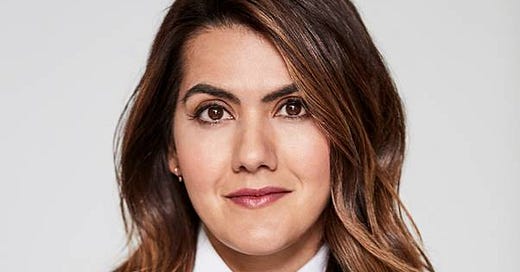Farrah Storr: "My ambiguous ethnicity afforded me a different path in life"
How a trip to Pakistan changed the ELLE Editor-In-Chief's sense of identity

Hi, and welcome to the very first edition of Mixed Messages! To launch this newsletter, I spoke to the incredible Farrah Storr; multi-award-winning editor and Editor-In-Chief of ELLE. Of White British and Pakistani heritage, Farrah’s mix is similar to my own (White British and Punjabi Indian), so I was keen to find out how our experiences compared. Read…



